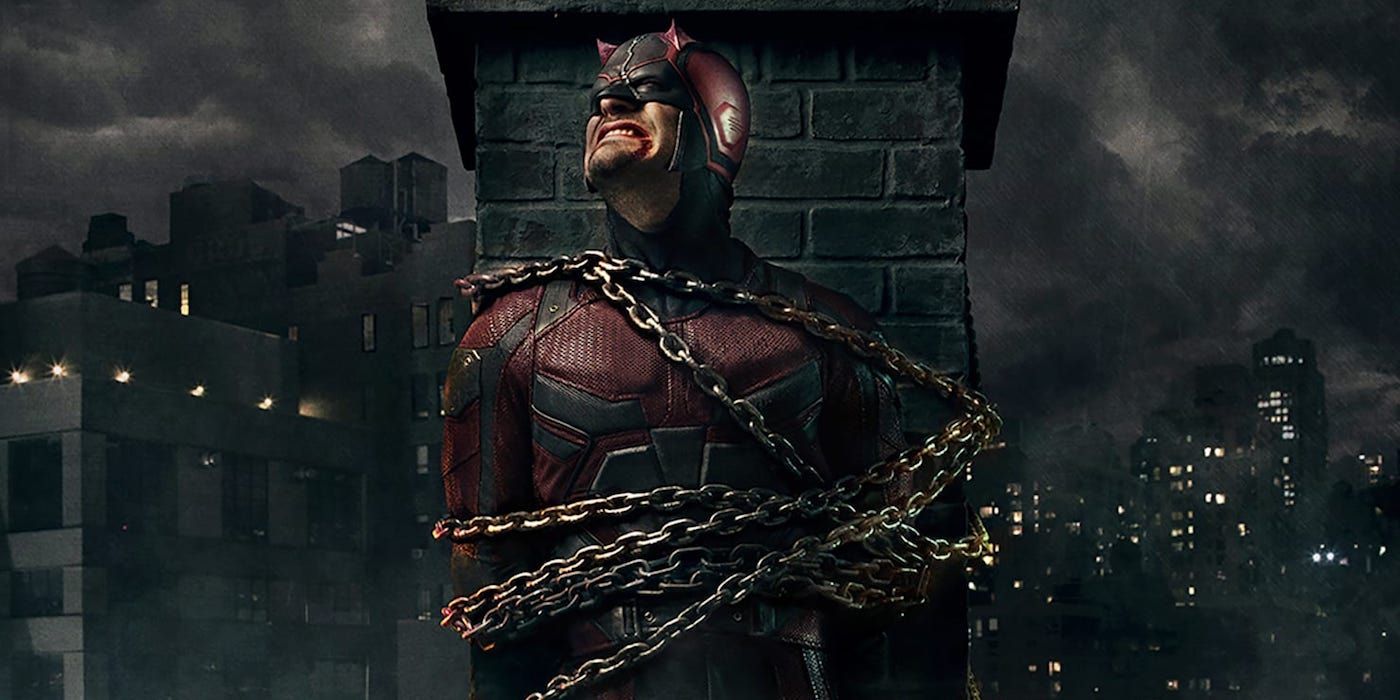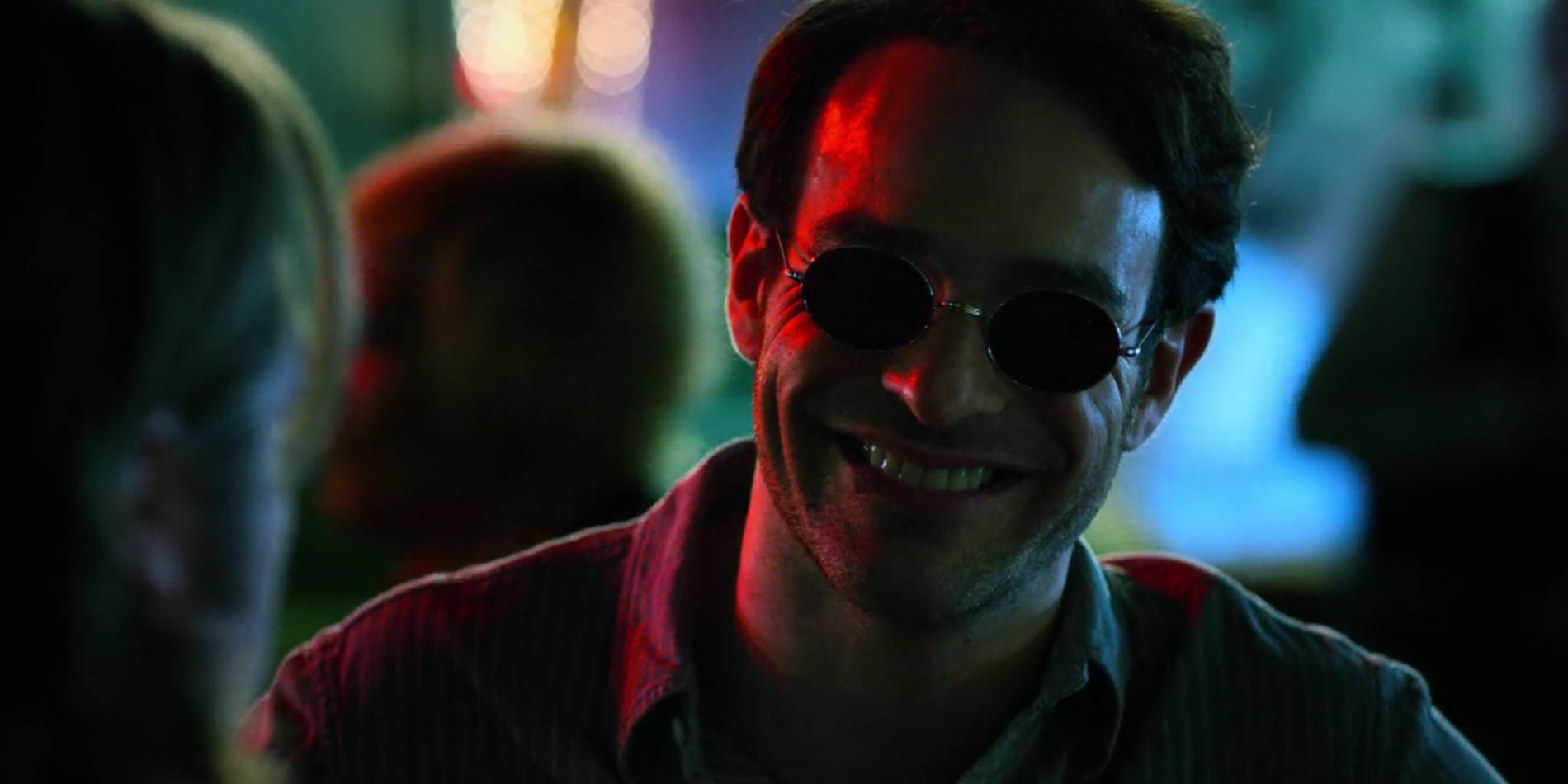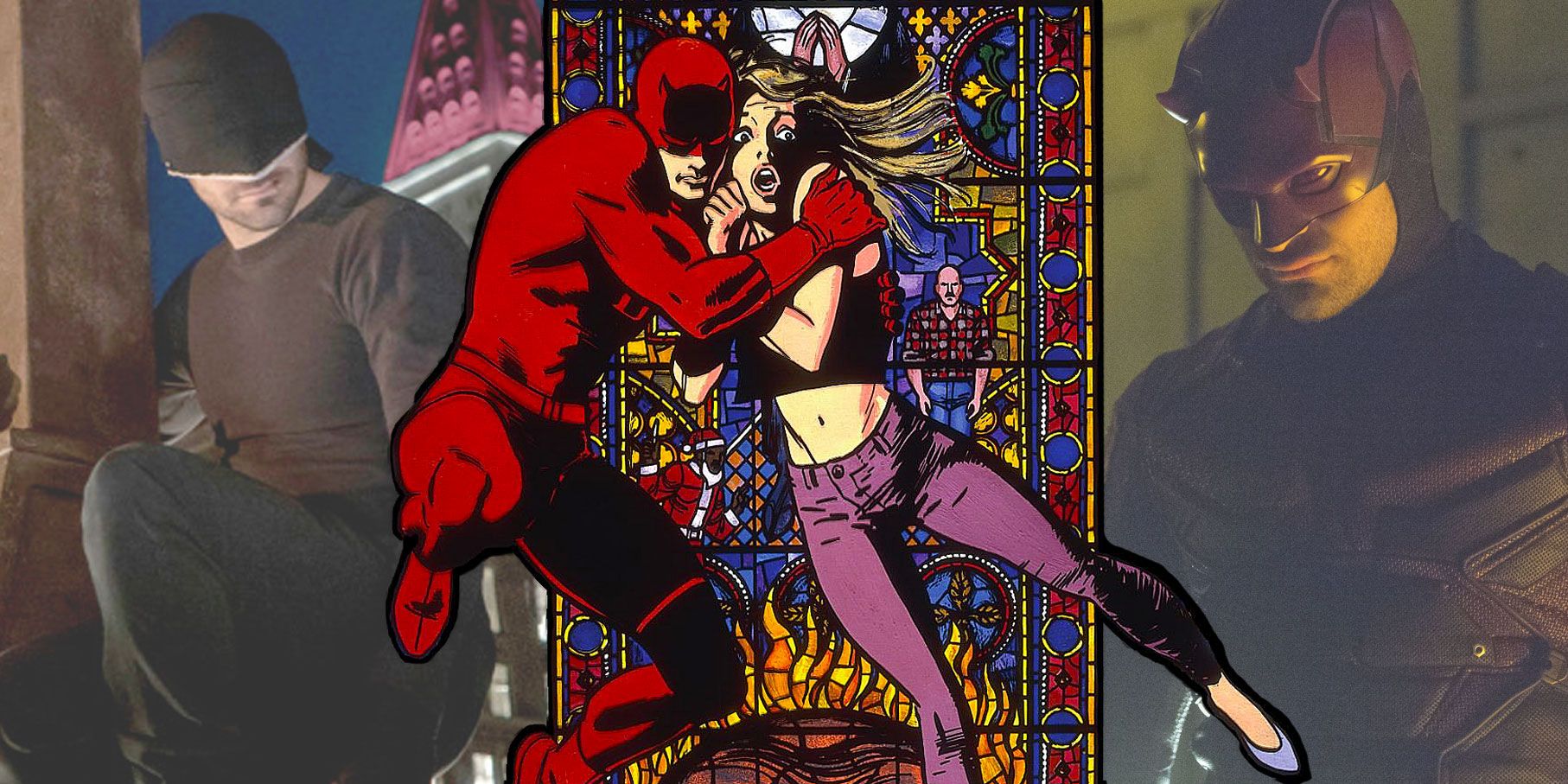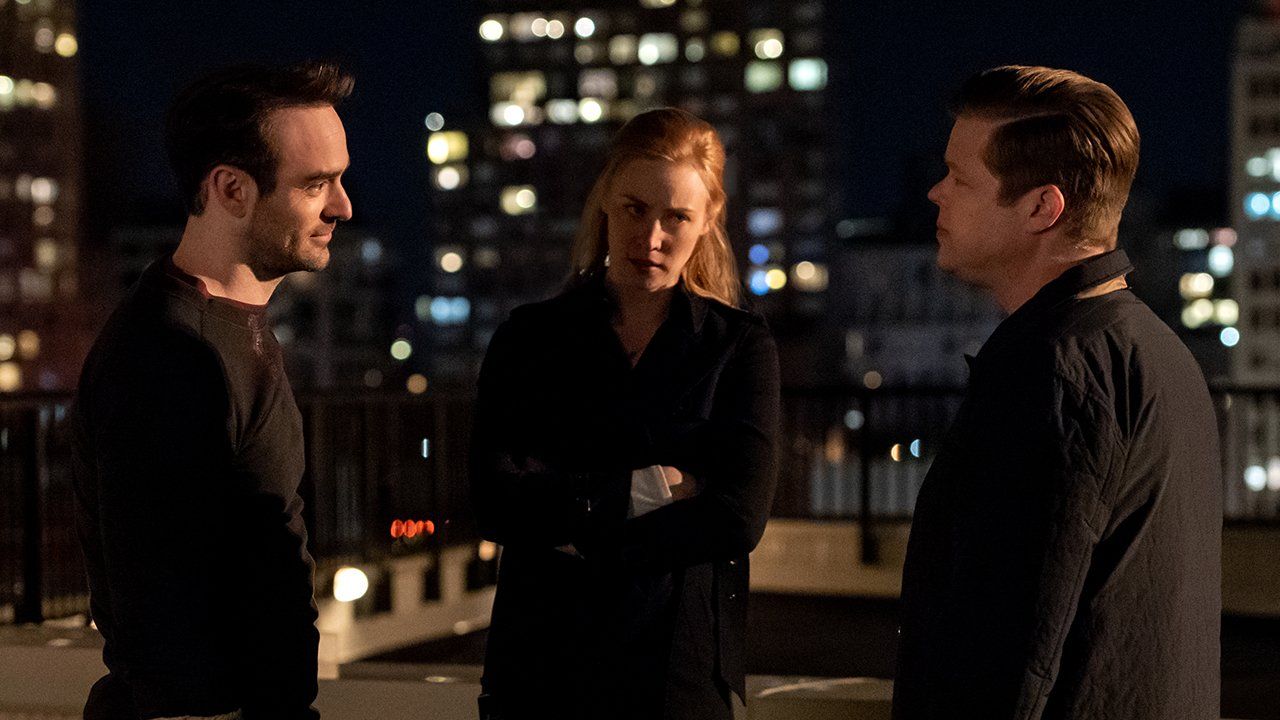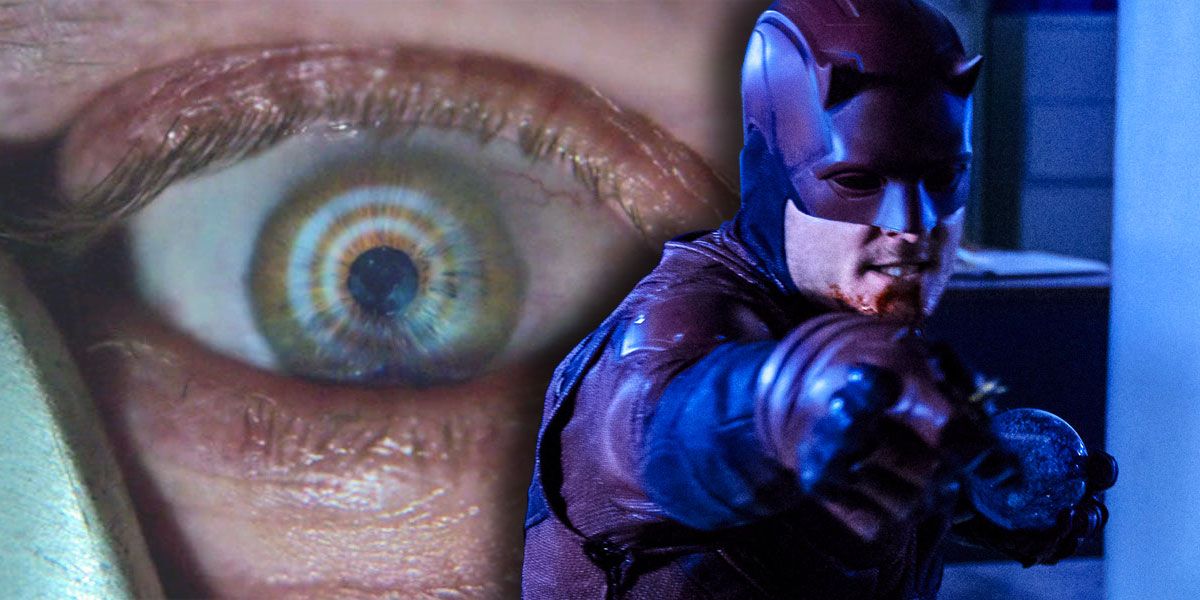With the news that Netflix is canceling Daredevil after three seasons, it appears that the writing is on the wall for that corner of the Marvel Cinematic Universe. We've witnessed Charlie Cox's rise, fall and triumphant return as the Man Without Fear since 2015, but with viewership reportedly declining, the streaming service has pulled the plug, just as it did with Iron Fist and Luke Cage.
However, while those shows suffered considerable issues on their own -- from casting to overall narratives -- Daredevil never really suffered from those problems. Instead, it appears be collateral damage. Looking back at how the show kickstarted the Netflix/Marvel partnership, there are actually a few reasons why, given the timing, this decision is actually a huge mistake.
THE SHOW'S RECEPTION
Daredevil has been well-received by critics and fans alike, earning more than 90 percent approval on Rotten Tomatoes. Those kinds of numbers are hard to come by, and even at their best the other Netflix shows would struggle to live up to such a high bar, especially due to the impact of Daredevil's debut season. Cox has been consistently phenomenal, but so too has the rest of the cast, with Vincent D'Onofrio's Kingpin and Deborah Ann Woll's Karen Page standing out and drawing fans in just as much as Cox did.
RELATED: Report: Daredevil's Viewership Dropped 57% From Season 2
Those actors helped cement Daredevil as the grounded face of the Netflix/Marvel union, so much so that whatever happened in the other series, Daredevil stood on its own merits, as seen in Season 3, which moved away from the events of The Defenders within the opening minutes without anyone caring or asking questions. It's all about Daredevil, and that'll always be the case -- something fans appreciated fully.
It was expected some fans wouldn't return to watch the series after Luke Cage and Iron Fist's respective second seasons received lukewarm praise, but Daredevil had emotional depth, epic action sequences and drama, not to mention a solid showrunner in Erik Oleson, who cares about maintaining the high standard initially set by the series. If it's one show you could bet on to rebound, it's Daredevil, and we witnessed a creative team picking up the pieces in the wake of The Defenders, trudging on to craft a third season that was dynamite to say the least, and one which, really, you'd have to nitpick hard to find flaws in.
THE STORY NEVER DISAPPOINTED
Season 1 focused on Matt's origin as he became the protector of Hell's Kitchen, while Season 2 stripped him down and sent him to a dark place after meeting Jon Bernthal's Frank Castle. Season 3 then saw Matt undergoing a rebirth in an adaptation of the "Born Again" storyline, which felt like his overall origin was now complete. That journey made him a complete hero, with the supporting cast being just as intriguing and tormented as he was, all combining to help mold the story of light versus darkness in Hell's Kitchen.
RELATED: How Netflix's Daredevil Changes Major Characters from Marvel's 'Born Again' Story
From gangs and politics to mystical adventures, Daredevil had it all, and it felt like no matter which story was being adapted, it would be done competently. Even the change in Bullseye's history felt natural against the grimy underworld of the show's New York City, allowing fans to ignore how far it landed from the books.
And that's the strength this series had, and still has -- whether it's Matt, Karen of Wilson Fisk himself. Fans buy in and are invested in whatever change the writers want to make (heck, we were even cool after they killed off Ben Urich). That kind of trust is not an easy thing to achieve with diehard comic lovers, yet Daredevil's story always kept us hooked and accepting of what the creative team envisioned.
NEXT PAGE: Now is Absolutely the Wrong Time to Cancel Daredevil
THE TIMING IS OFF
We can argue that, creatively, Netflix is erring, as Daredevil has legs to stand on its own because of how good it is, but we also need to look at the timing of this axing. This means Netflix is more or less telling Marvel they can have their characters back for the Disney+ streaming service, and is willing to lose momentum in the ever-growing superhero market. The CW isn't slowing down with its Arrowverse, Hulu's Runaways is off the ground and Freeform's Cloak and Dagger is rapidly approaching its second season after a top-notch debut. Of course, the DC Universe has Titans, and is set to bring Young Justice and Swamp Thing into play.
RELATED: How Daredevil's Finale Sets Up Season 4
Ending this storytelling partnership with Marvel by effectively removing the horned vigilante as its poster boy may dampen people's enthusiasm for the forthcoming seasons of Jessica Jones and The Punisher, as bitter as that is to swallow. Matt Murdock was the central pillar, but now that interconnectivity is gone and fans are prepared for the exodus to Disney+.
It's a shame, as Netflix could have used the iconic Daredevil to capitalize on the MCU's Phase Four and keep fans reeled in, because let's face it, as long as the MCU keeps rolling, people will turn to Netflix for the vigilantes they can't see in cinemas. This move is Netflix basically saying we don't want to be invited to the superhero party anymore, just when the music's about to get louder.
SEASON 4 WAS SET UP SO WELL
With Season 3 bringing Bullseye into play as well, it felt like we had finally arrived at that high-octane, all-out war we had waited for since Daredevil's debut season. But, alas, it's a payoff we won't get anymore. Everything from Karen's history, Matt and Foggy Nelson rebuilding a law firm, Matt's mother Maggie entering the fray and everyone understanding the sacrifice needed to become paragons of virtue gave us an ensemble that was mature enough now to take on the world.
RELATED: Marvel Says Daredevil Character Will 'Live On' in Future Projects
Not to mention we had yet to see Matt don his red costume again, or the result of Kingpin in prison again. The villain's wife, Vanessa, was also left hanging on the outside, while Bullseye was surely looking for revenge and Stone (Stick's mysterious warrior) was on the prowl. So, Oleson had a lot of creative toys to play with. It's clear from his excitement at pitching Season 4, as well as how badly D'Onofrio and Woll wanted to continue their stories, everyone wanted to carry on. Season 3's ending wasn't one based on style, but rather substance and closure, with heroes and villains clearly defined, setting up at least one more powder keg of a season.
Well, without risk there's no reward and, honestly speaking, after three bombastic seasons it'd be an insult to call Daredevil a risk. Marvel said the character will live on in other Marvel projects, but right now losing faith and pulling the plug like this feels like wasting something that's tried, tested and proven, yet still filled with so much potential.

